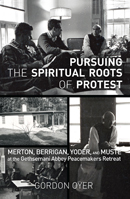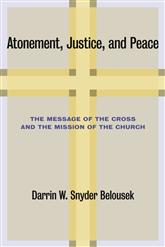Reflection from Pax Christi USA, December 17, 2013
by Scott Wright, Pax Christi Metro D.C.-Baltimore
Part of the title (in quotes) is borrowed from an essay by Stanley Hauerwas, a moral theologian who was deeply influenced by the late Mennonite theologian John Howard Yoder, both of whom taught at Notre Dame.[1] The title is challenging, but we cannot deny that our deepest longings and aspirations move us toward this goal for peace. In fact, the abolition of war forms the opening of the United Nations Charter: “We, the people of the United Nations, [are] determined to save succeeding generations from the scourge of war… and to live in peace with one another as good neighbors…” The times require great moral imagination, and great moral courage.
Particularly when we look at the state of the world today, and begin to measure our humble efforts for peace against such a stark reality of war and violence, we tend to get discouraged, and may be tempted to give up hope in ever seeing the day when war is finally abolished. Yet history is full of surprises. Who could have predicted that non-violent movements for democracy would usher in the end of the Cold War, or that dialogue between arch-enemies in South Africa would lead to the end of apartheid?

Surely, others before us were discouraged and tempted to lose hope; for instance, in the long struggle to abolish slavery and torture. Why should the struggle to abolish war be any different? We know that slavery continues to exist even today, and it is a very serious problem. Torture, too, continues to be practiced, as we know very well from the pictures and stories that have been broadcast to the world from Abu Ghraib and Guantanamo. Still, it was a very significant step to abolish the moral and legal justifications for both slavery and torture; and it would be a very significant step to do the same regarding the practice of war.
I believe there are good grounds for hope in this struggle to finally abolish war. The witness of the Mennonites and other peace churches over the past several centuries is a reason for hope. The teachings of the Catholic Church since the Second Vatican Council give rise to hope, particularly the eloquent and urgent pleas of the popes, from Paul VI’s impassioned plea to the General Assembly of the United Nations in 1965: “Never again war! No, never again war!”[2] to John Paul II’s repetition of that plea in his encyclical Centesimus Annus in 1991,[3] and later his Jubilee message on the World Day of Peace in 2000: “War is a defeat for humanity!”[4] And finally today, Pope Francis’ words opposing war during an evening prayer service for Syria in St. Peter’s Square:
“How many conflicts, how many wars have mocked our history?” he asked the faithful. “Even today we raise our hand against our brother…We have perfected our weapons, our conscience has fallen asleep, and we have sharpened our ideas to justify ourselves as if it were normal we continue to sow destruction, pain, death. Violence and war lead only to death.”
In each of these instances, we find a step in the conversion of the Catholic Church toward becoming an authentic peace church, rooted in the Gospel of peace and the passion, death and resurrection of Our Lord and Savior, Jesus Christ. This change of emphasis in the Catholic Church is marked by an increased use of the just war theory to restrain and oppose modern warfare, rather than to justify it, and a “seismic shift”[5] to nonviolence as a public witness for peace, both key elements in making the case for the final abolition of war.
Continue reading “Pax Christi and the gospel of peace – “Making the case for the abolition of war”” →





 Bridgefolk participant and board member Darrin Snyder Belousek has just published a major new book on atonement. The book develops a biblical theology of the cross in connection with justice and peacemaking. Published by Eerdmans, the book is entitled Atonement, Justice, and Peace: The Message of Cross and the Mission of the Church. Belousek notes that “one chapter focuses on ecumenical peacemaking in the church and is directly influenced by my experience in and reflection on Bridgefolk.” Here is the publisher’s description and a link to purchase online:
Bridgefolk participant and board member Darrin Snyder Belousek has just published a major new book on atonement. The book develops a biblical theology of the cross in connection with justice and peacemaking. Published by Eerdmans, the book is entitled Atonement, Justice, and Peace: The Message of Cross and the Mission of the Church. Belousek notes that “one chapter focuses on ecumenical peacemaking in the church and is directly influenced by my experience in and reflection on Bridgefolk.” Here is the publisher’s description and a link to purchase online: